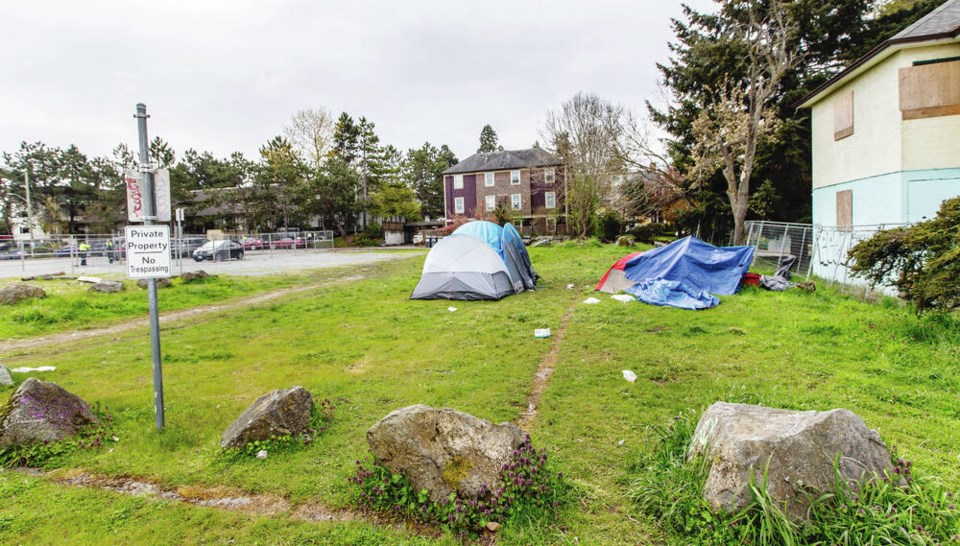There is a concept in health promotion called victim-blaming — blaming smokers for their habit, for example, when in reality they are the victims of a sophisticated marketing campaign.
The same concept applies to the tendency by many to blame the City of Victoria for problems such as homelessness, mental health and addictions problems, park camping and crime and violence. And with municipal elections coming up, it’s only going to get worse.
But in reality, these are not problems created mainly, if at all by the city, so they cannot be solved by the city. Both the causes and the solutions lie elsewhere, usually in federal and provincial policy decisions, sometimes in the actions (or inactions) of the courts, health professionals and others.
As Randy Hatfield, executive director of the Human Development Council in St. John, N.B., succinctly put it recently: “The federal government has the resources, the provinces have the responsibility, the municipalities have the consequences.”
Let’s begin with one of the more obvious and upsetting problems: homelessness. Why do we have so many people homeless and living on the street?
It’s a topic I have explored several times, most recently in my April 10 and July 17 columns, so I won’t repeat here what I said then. But it is important to understand that the crisis in social housing is the result of the cancellation of the federal social housing program in 1993 and the downloading of responsibility to the provinces in the early 1990s.
When social housing is not built and rents are high, people at the bottom end of the social and economic spectrum get pushed out onto the streets.
On top of that, we know from the March 2020 homeless count and survey that almost two-thirds of people who are homeless had a substance-use issue, well over half had a mental-health issue and almost one-third had an acquired brain injury. These are not people who should be living on the street, where they are only made worse.
So why are they homeless and on the street? An important factor was the closing of psychiatric hospitals in the 1980s. They were closed because they were seen as inhumane, and because of a belief that people would be better off in the community.
This was a provincial decision, and was supposed to be accompanied by moving funding into the community. But by and large that did not happen, at least not anywhere near enough, leaving people who are already challenged to live on the streets, which is also inhumane.
Let’s imagine for a moment that we are talking about cancer treatment rather than treatment for people with mental health and addiction problems.
Would we have closed the cancer treatment centres if we found inhumane conditions and sent the patients home to get community-based care?
Would we then have under-funded the community-based care? Would we be OK with cancer patients living on the streets and not getting the care they need?
Or would we fix the problem by addressing the inhumanity and providing quality care, rather than perpetuate the inhumanity elsewhere?
As to camping in the parks, that came from two main factors: The B.C. Court of Appeal ruled in 2009 that people had a right to shelter in the parks if adequate shelter was not available to them, and then COVID made it necessary for people who were homeless to be sheltered in the parks until proper shelter could be provided.
So it was the completely understandable decisions of legal and health authorities that led to the situation in the first place, coupled with federal and provincial under-funding of social housing and mental-health care.
Clearly, the City of Victoria and other local municipalities did not create the policies and practices that have caused these problems, and it is unfair to expect them to fix them.
This is not to say that local governments cannot be part of the solution, but they are not the ones who should be held accountable. It is not fair to blame the victim — in this case, the city — for policy and program failures coming from other levels of government.
Next week, I turn to the issue of crime, violence and community safety.
Dr. Trevor Hancock is a retired professor and senior scholar at the University of Victoria’s School of Public Health and Social Policy


